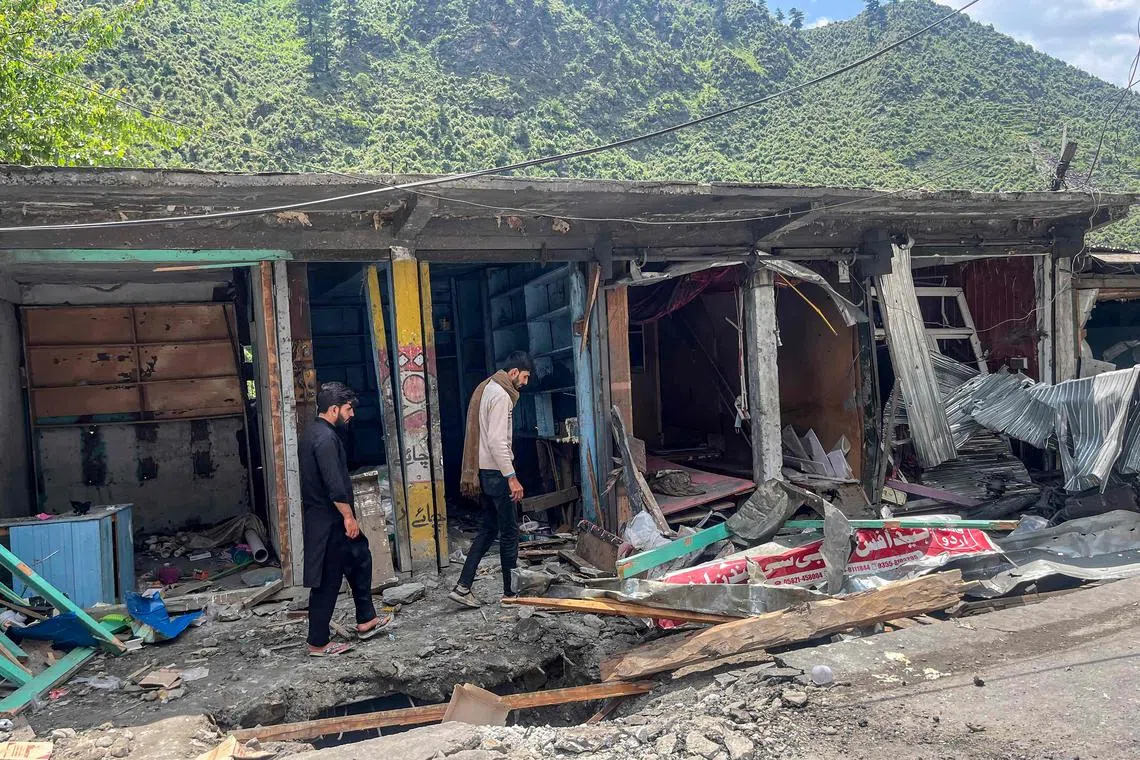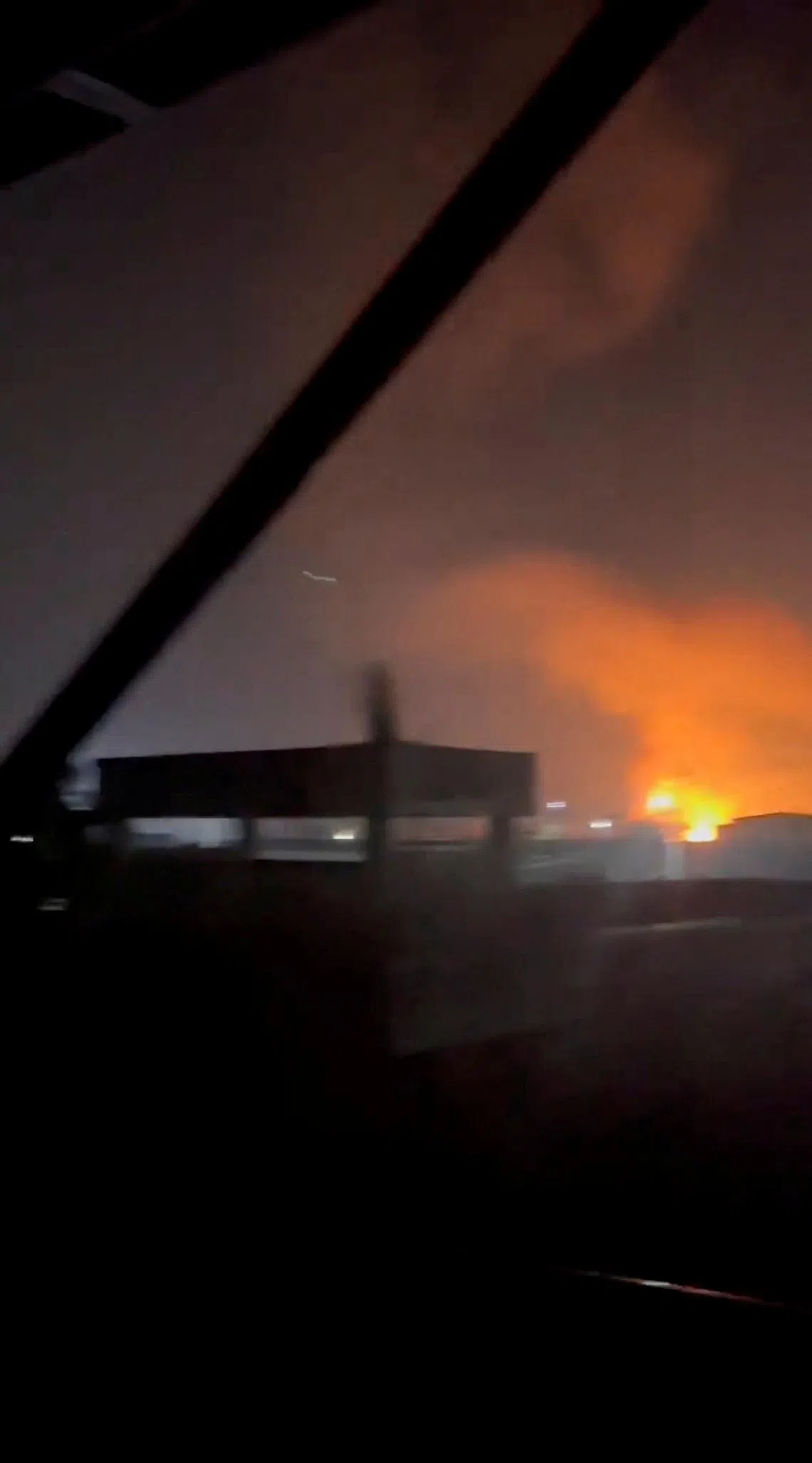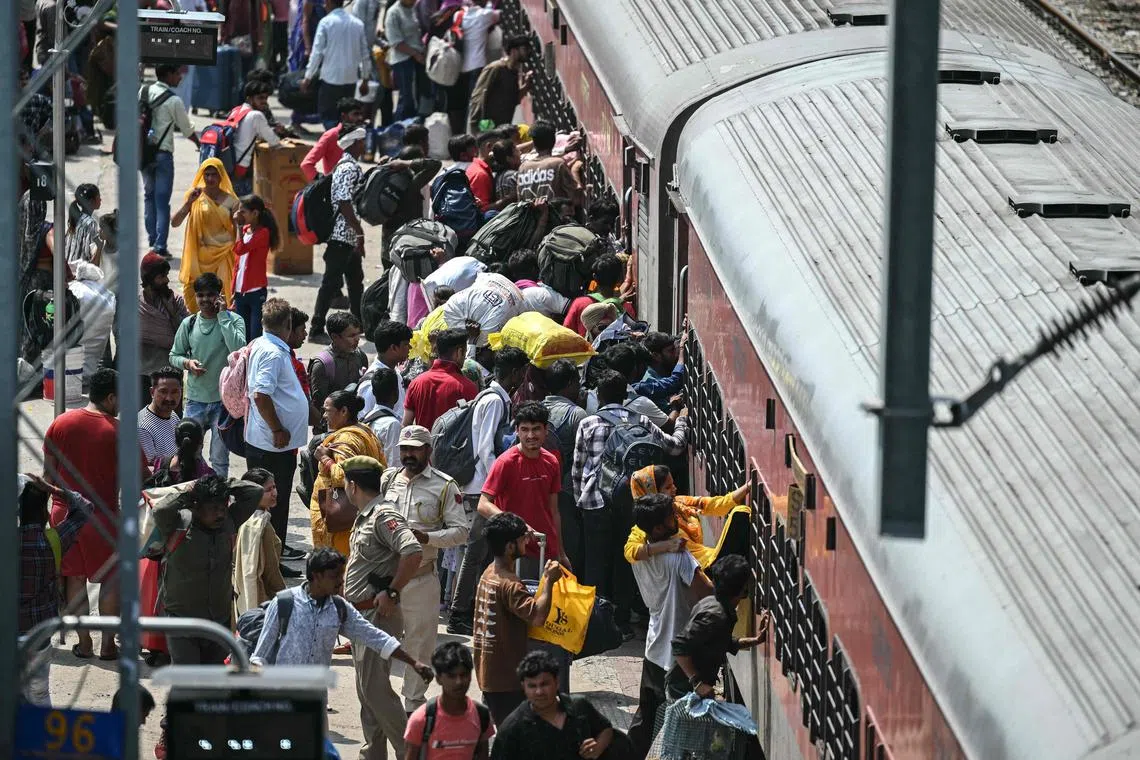India and Pakistan agree to ceasefire after days of attacks
Sign up now: Get insights on Asia's fast-moving developments
SRINAGAR, India – Pakistan and India agreed on May 10 to a full and immediate ceasefire after days of deadly jet fighter, missile, drone and artillery attacks, the news surprisingly announced by US President Donald Trump, who congratulated them on using “common sense”.
Officials from Islamabad and New Delhi confirmed the development minutes after Mr Trump posted the announcement on his Truth Social network, as the conflict between the nuclear-armed neighbours appeared to be spiralling towards a full-blown war.
“After a long night of talks mediated by the United States, I am pleased to announce that India and Pakistan have agreed to a full and immediate ceasefire. Congratulations to both countries on using common sense and great intelligence,” Mr Trump posted.
Indian Foreign Secretary Vikram Misri said both sides would “stop all firing and military action on land, air and sea” with effect from 5pm (7.30pm Singapore time).
In a statement on X, Pakistan Foreign Minister Ishaq Dar said: “Pakistan and India have agreed to a ceasefire with immediate effect. Pakistan has always strived for peace and security in the region, without compromising on its sovereignty and territorial integrity!”
India’s Foreign Ministry said the head of Pakistan’s military operations called his Indian counterpart on the afternoon of May 10 and it was agreed that both sides would stop all firing.
The two heads will speak to each other again on May 12, the ministry added.
Pakistan has reopened its airspace following the announcement, the Pakistan Airports Authority said.
However, the Indus Waters Treaty between India and Pakistan remains suspended, four government sources told Reuters.
The 1960 treaty regulates the sharing of water from the Indus River and its tributaries between the South Asian nations. India pulled out of it in April after a deadly attack on tourists in Kashmir.
The sudden ceasefire announcement came on a day when fears spiked that the countries’ nuclear arsenals might come into play, as Pakistan’s military said a top military and civilian body overseeing its nuclear weapons would meet.
But Pakistan’s Defence Minister later said no such meeting was scheduled.
At the same time, officials from both sides showed a willingness to take a step back following the day’s exchanges, as the combined civilian death toll on the two sides rose to 66.
Indian Wing Commander Vyomika Singh told a briefing earlier on May 10 that there were “several high-speed missile attacks” on airbases, but “limited damage” to equipment.
Pakistan had earlier accused India of targeting three of its bases with missiles – including one in Rawalpindi, some 10km from the capital, Islamabad.
The authorities in Pakistan-administered Kashmir said 11 civilians were killed by Indian shelling overnight.
The clashes between the two neighbours are the worst in decades.
Kashmir attack
The fighting was touched off by an attack in April in the Indian-administered side of disputed Kashmir
India accused the Pakistan-based Lashkar-e-Taiba – a UN-designated terrorist organisation – of carrying out the attack, but Islamabad has denied any involvement and called for an independent probe.
The countries have fought several wars over the Muslim-majority Kashmir

Shops damaged after cross-border shelling along the line of control between Pakistan and India on May 10.
PHOTO: AFP
Earlier on May 10, in a series of calls to senior officials in both countries, US Secretary of State Marco Rubio urged them to restore direct communication to “avoid miscalculation”.
He “emphasised that both sides need to identify methods to de-escalate and re-establish direct communication to avoid miscalculation”, said State Department spokeswoman Tammy Bruce.
For the first known time since the conflict erupted, Mr Rubio also spoke with Pakistan’s army chief, considered the country’s key power broker.
China also made a similar appeal, as did the Group of Seven industrialised nations.
The overnight Indian attack on the Rawalpindi airbase could be heard from Islamabad.
The airbase is used to receive foreign dignitaries, and Saudi Minister of State for Foreign Affairs Adel Al-Jubeir had departed just hours earlier.

An explosion in Rawalpindi, Pakistan, in the early hours of May 10.
PHOTO: REUTERS
Separately, AFP journalists reported loud explosions in Srinagar, the capital of India-administered Kashmir.
A police officer, speaking on condition of anonymity, said the Awantipora military airbase outside the city had been struck.
The Indian army said “multiple enemy drones were spotted flying over” a military cantonment in Amritsar in Punjab, a state adjoining Kashmir, and were “instantly engaged and destroyed by our air defence units”.
Rush to leave
In Jammu, Indian-run Kashmir’s second-biggest city, people scrambled to board a special train dispatched to ferry people out
“There are loud explosions the entire night,” said mason Karan Varma, 41. “There is no choice but to leave.”

In Jammu, people scrambled to board a special train dispatched to ferry people out.
PHOTO: AFP
The overwhelming majority were poor labourers from other parts of India seeking to return to their homes.
On May 9, the Indian army said it had repulsed waves of Pakistani attacks using drones and other munitions overnight, and gave a “befitting reply”.
Pakistan’s military spokesman denied that Islamabad was carrying out such attacks, and vowed revenge for India’s initial strikes
Pakistani military sources said the country’s forces had shot down 77 drones, with debris of many incursions seen by AFP in cities across the country.
Pakistan’s military early on May 10 claimed New Delhi’s forces had bombed their own territory in Amritsar, without providing evidence.
Armed groups have stepped up operations in Kashmir since 2019, when Indian Prime Minister Narendra Modi’s Hindu nationalist government revoked its limited autonomy and took the state under direct rule by New Delhi. AFP, REUTERS


